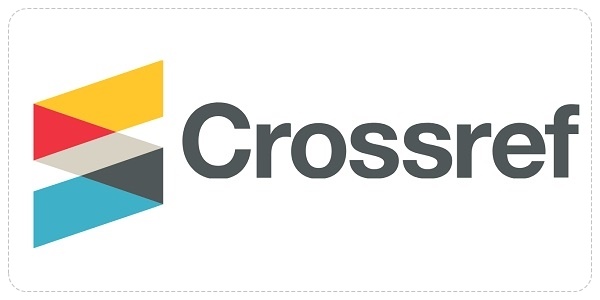EVALUASI PROGRAM PENDIDIKAN ALTERNATIF DI KOTA BANDAR LAMPUNG
Abstract
Pendidikan alternatif sebagai pilihan alternatif bagi masyarakat yang memiliki akses pendidikan terbatas, dan pelaksanaan pendidikan alternatif memiliki kontribusi signifikan untuk mencapai tujuan pendidikan nasional. Sejak pendidikan alternatif ada di Kota Bandar Lampung, tidak ada proses evaluasi yang dilakukan ke sekolah-sekolah pendidikan alternatif. Jadi, merupakan suatu keharusan untuk mengevaluasi sekolah-sekolah tersebut untuk mendapatkan informasi dalam membantu pembuat kebijakan untuk memiliki keputusan yang baik terkait dengan pendidikan alternatif di kota Bandar Lampung. Tujuan penelitian ini adalah untuk mendapatkan informasi dan mendeskripsikan secara empiris tentang pendidikan alternatif, dan memberikan rekomendasi kepada instansi terkait seperti dinas pendidikan kabupaten tentang: (1) masyarakat, lembaga / lembaga pelaksana, dan persepsi siswa tentang pendidikan alternatif. (2) prestasi belajar siswa, (3) sistem pembelajaran, (3) faktor pendukung, dan (5) hambatan untuk melaksanakan pendidikan alternatif di Kota Bandar Lampung. Teknik purposive sampling digunakan dalam penelitian ini, dan data dikumpulkan dengan menggunakan kuesioner, wawancara mendalam, dan studi dokumentasi. Data dianalisis dengan menggunakan teknik deskriptif kualitatif. Rekomendasi untuk masa yang akan datang: (1) Untuk siswa sekolah RoKiA (12 kelas) yang memiliki kompetensi dalam sains dapat mengembangkan minat dan kompetensi mereka, akan lebih baik bagi mereka untuk diizinkan oleh dinas pendidikan kabupaten untuk mengikuti ujian atau sains Paket C ujian yang setara, (2) Agar lebih efisien, akan lebih baik bagi sekolah RoKiA untuk memiliki rasio murid-guru sesuai dengan standar nasional atau setidaknya 1: 10, (3) Untuk melaksanakan artikel UU Guru No. 14/2005 8, 9, dan 11, akan lebih baik bagi guru sekolah RoKiA untuk memiliki setidaknya kualifikasi akademik S1 atau D4, dan sertifikat guru sebagai pendidik profesional, dan (4) pemerintah daerah harus lebih proaktif untuk memberikan perhatian dan dukungan terhadap alternatif lembaga pendidikan seperti sekolah RoKiA.
Alternative education as an alternative choice for the community who has limited access to education, and the implementation of alternative education has significant contribution to achieve the national education goal. Since the alternative education existed in Bandar Lampung city, there was no evaluation process conducted to the alternative education schools. So it was a must to evaluate those schools to get information in helping the policy makers to having good decision related to alternative education in Bandar Lampung city. The purpose of this study was to get information and describe empirically about the alternative education, and give some recomendations to related institutions such as district education office about: (1) the community, the implementing agencies/institutions, and the students’ perception about alternative education, (2) students’ achievement, (3) instructional system, (3) supporting factors, and (5) the obstacles to implement the alternative education in Bandar Lampung city. Purposif sampling technique was used in this study, and the data was collected by using questionnaire, in-depth interview, and documentation study. The data was analysed by using qualitative-descriptive technique.
This study found that: (1) RoKiA (homeschooling) school as an alternative school have given positive contribution toward education problems especially in Bandar Lampung city, (2) RoKiA school used combination of classical and individual system of instruction, (3) In general, student achievement of RoKiA school was very good, (4) All RoKiA school components either students, parents/community or teachers were aware of the important of alternative education, (5) RoKiA school infrastructure was good and appropriate for student to learn, (6) Some RoKiA school teachers have no S1 or D4 academic qualification, (7) Most RoKiA school teachers have no teacher certificate as professional educators, and (8) there was no support and attention from the local government either to improve the infrastructure or quality of RoKiA school. Recommendations for the future: (1) In order to RoKiA school students (12 grade) who have competency in science could develop their interest and competencies, it would be better for them to be permitted by district education office to take Paket C examination or science equivalent examination, (2) To be more efficient, it would be better for RoKiA school to have student-teacher ratio suitable with the national standard or at least 1 : 10, (3) To implement the Teacher Law No. 14/2005 article 8, 9, and 11, it would be better for RoKiA school teachers to have at least S1 or D4 academic qualification, and teacher certificate as a professional educator, and (4) local government should be more proactive to give attention and support to alternative education institutions such as RoKiA school.Keywords
Full Text:
PDF (Bahasa Indonesia)References
Banathy,Bela H. (1991) . Systems Design of Education. A Journey to Create the Future. Englewood Cliffs, NJ: Educational Technology Publications.
Denzin, Norman K. Yvonna S. Lincoln. Handbook of Qualitative Research, 2nd edition. London: Sage Publication, Inc, International Educational and Professional Publisher, 2000.
D. Gall, Joyce P. Gall, & Walter R. Borg. (2003). Educational Research. Pearson Education, Inc
Djaali, Puji Mulyono dan Ramly. Pengukuran Dalam Bidang Pendidikan. Jakarta: PPs UNJ, 2000.
Kathi Moreau. (2012). Specefic Differencesin The Educational Outcomes of Those Students In A Traditional School Setting.
Mintz, Jerry. (1994). The Handbook of Alternative Education. New York:
Macmillan Publishing Company
Mulyadi, Seto. (2007). Home schooling Keluarga Kak Seto : Mudah, Murah, Meriah, dan Direstui Pemerintah, Jakarta: PT. Mizan Pustaka.
Norlidah Alias, Mohd. Nazri Abdul Rahman, Saedah Siraj, Ruslina Ibrahim. A Model of Homeschooling Based on Technology in Malaysia. The Malaysian Online Journal of Educational Technology Volume 1 , Issue 3-2012. (asks 27 Febuari 2015, pkl 11.00)
Ransom, Marsha. (2001). The Complete Idiot’s Guide to Homeschooling, (USA: Alpha publishing).
Reigeluth,Charles M. dan Robert J. Garfinkle.(eds.). (1994). Systemic Change in Education. Englewood Cliffs, NJ: Educational Technology Publications.
Robert Kunzman, Homeschooling and Religious Fundamentalism. International Electronic Journal of Elementary Education Vol. 3, Issue 1, October, 2010. ISSN: 1307-9298 Copyright © IEJEE. www.iejee.com/3_12010_17_28.pdf. (akses 25 Febuari 2015, pkl 21.15).
Robert Kunzman & Milton Gaither. Homeschooling: A Comprehensive Survey of the Researc. Other Education: The Journal of Edcational Altenatives ISSN 2049-2162 Volume 2 (2013), Issue 1 . pp. 4-59. http://homeschoolwa.com.au/Homeschooling20A%20Comprehensive%20Survey%20of%20the%20Rearch202013.pdf. (akses 25 Febuari 2015, pkl 22.00).
Sandra Martin-Chang, Odette N. Gould and Reanne E. Meuse. The Impact of Schooling on Academic Achievement: Evidence From Homeschooled and Traditionally Schooled Students Concordia University and Mount Allison University Mount Allision nversity. Canadian Jounal of Behavioural Science 2011, Vol. 43, No. 3, 195-202 © 2011 Canadian Psychological Association 0008-400X/11/$12.00 DOI: 10.1037/a0022697. http://www.zoleerjemer.nl/files/1313/9109/4391. (akses 25 Febuari 2015, pkl 22.30).
Simbolon, Pormadi. (2007). Homeschooling: Sebuah Pendidikan Alternatif, (Online), http://pormadi.wordpress.com/2007/11/12/homeschooling//. (diakses 23 Febuari 2015 pkl 12.45.00).
Stake, Robert E., (2006). The Art of Case Study. London: Sage Publications, Inc.
Sumardiono, (2007). Home schooling; Lompatan Cara Belajar. Jakarta: Elex Media Komputindo.
Yusuf Hadi Miyarso, (Agustus 2007). Teknologi yang Berwajah Humanis. Makalah disajikan dalam Seminar Internasional dan Temu Alumni FIP/JIP se-Indonesia di Manodo.
Unicef (2015). Global Initiative on Out-of-School Children: Indonesia Country Study. April 2015.
UPPKH-Kemensos, 2014
https://www.google.com/?gws_rd=ssl#q=jumblah+anak+usia+sekolah+yg+blum+sekolah+menurut+KNPA+tahun+2014). (akses 23 Febuari 2015, pkl 10.15).
DOI: https://doi.org/10.17509/pdgia.v16i1.10840
Refbacks
- There are currently no refbacks.
INDEXED BY

This work is licensed under a Creative Commons Attribution-ShareAlike 4.0 International License















